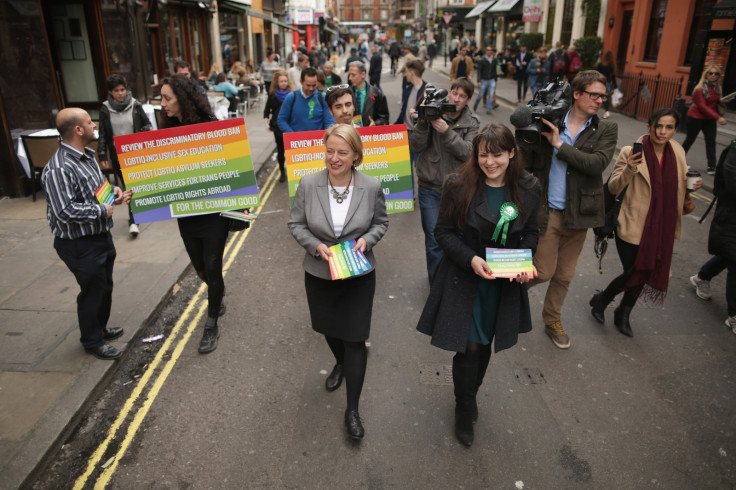Green Party 'open' to legalising polygamy in marriage says Natalie Bennett

Green Party leader Natalie Bennett has said her party is "open" to the possibility of three-way (or more-way) marriages.
Her comments came in response to a question posed by a reader of Pink News during a Q&A session with readers of the gay news website on Friday (1 May).
Dr Redfern Jon Barrett asked Bennett: "As someone living with his two boyfriends in a stable long-term relationship, I would like to know your stance is on polyamory rights. Is there room for Green support on group civil partnerships or marriages?"
The Green party leader replied that her party had no specific policy in place, adding that she was "open to further conversation and consultation" about polyamorous marriages.
"At present, we do not have a policy on civil partnerships involving more than two people," she said. "We are, uniquely in this country, a party whose policies are developed and voted for by our members. We have led the way on many issues related to the liberalisation of legal status in adult consenting relationships, and we are open to further conversation and consultation."
Speaking at the launch of the Green party's LGBTIQ manifesto in Soho later, Bennett warned that, "Homophobia, transphobia and biphobia are still all too common in our society. Too many people still fear persecution – at home, in the workplace and on the street."
Also on Friday, Bennett told IBTimes UK that top firms can boost the number of lesbian, gay, bisexual and transgender business leaders by introducing gender board quotas.
The Green leader told IBTimes UK that by implementing the positive discrimination measures for women, businesses will "naturally" look beyond their "golf club" mentality to employees from the LGBT community.
"I think what happens, and there is quite a lot of evidence of this internationally, is [that] when you actually bring in quotas for women, you open up to more diverse groups of people," she said. "Once you are looking beyond the members of the golf club, you end up with more diverse boards."
© Copyright IBTimes 2025. All rights reserved.




















